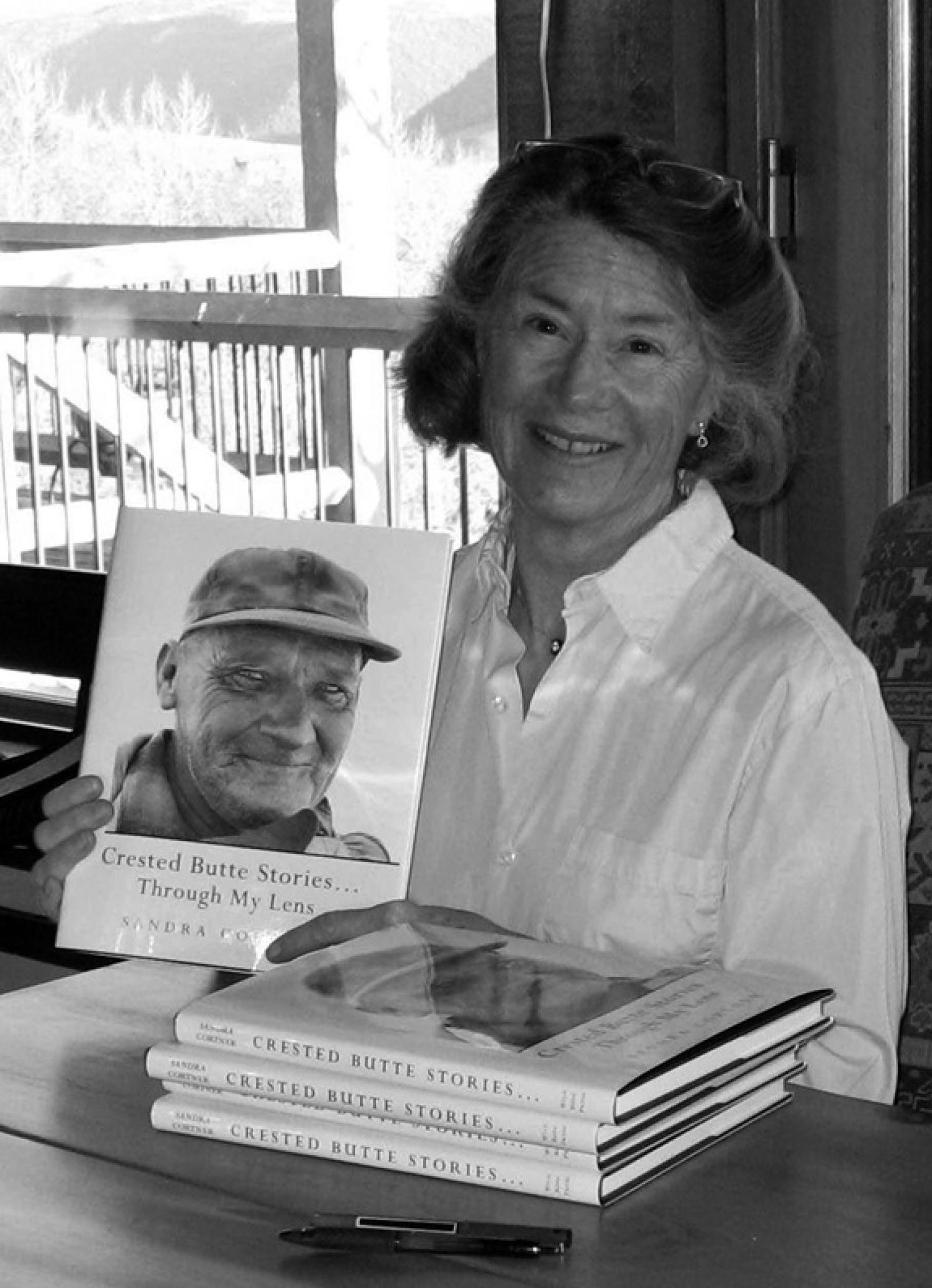
Alum Captures Crested Butte Through Her Lens

In her first assignment as a photojournalist in 1968, Sandra Cortner (Ital’68) moved her subject outside because of necessity — she hadn’t earned enough money yet to buy a flash. Her editor loved the result, and Sandra was propelled into a career in black-and-white portraiture that has since been highlighted in the 2006 Crested Butte Stories…Through My Lens (Wild Rose Press).
The teenage Sandra arrived in Crested Butte, Colo., in the summer of 1964. There were few people her age, and the mountain climate was unlike anything she had experienced in her hometown of Tucson, Ariz. She returned to Tucson at summer’s end, but by then the tiny town and its colorful residents had grown on her. After she graduated from CU, she drove her VW Bug home — to Crested Butte, not Tucson. And she’s been there ever since.
The “three-job shuffle” of waitressing, working for the town’s struggling weekly newspaper and clerking at her mother’s store gave way to full-time newspaper work when Sandra, then 24, started an advertising flyer that quickly morphed into the Crested Butte Pilot. Thanks to experience gained on the staff of CU’s Colorado Daily, she wrote articles, took photos, sold ads and single-handedly managed and published the fledgling newspaper.
Each week Sandra put everything into an envelope, rode her bike to the edge of Crested Butte and waited for a car to stop at her outstretched thumb. Then she’d implore the startled driver to deliver the envelope on his or her way to Gunnison. “The typewritten stories were originals, with no copies, so if they were lost we had to start over from scratch,” Sandra recalls in her book.
The Pilot covered Crested Butte as it grew from a coal-mining town to a renowned resort and vacation spot. Throughout, Sandra composed portraits of the town’s “old-timers”— men and women whose lives bridged the time between the closing of the last coal mine in 1952 and the opening of the ski area in 1961. She sold the Pilot in 1977.
Her portraits grace the walls of the town’s museum, and many can be found in Crested Butte Stories, along with reminiscences of her experiences from the 1960s through the ’80s. Her book gives insight into an era of the town’s history that is all but gone — when keys were left in ignitions, Fourth of July was synonymous with polka parties and you only dialed four digits to make a phone call.

